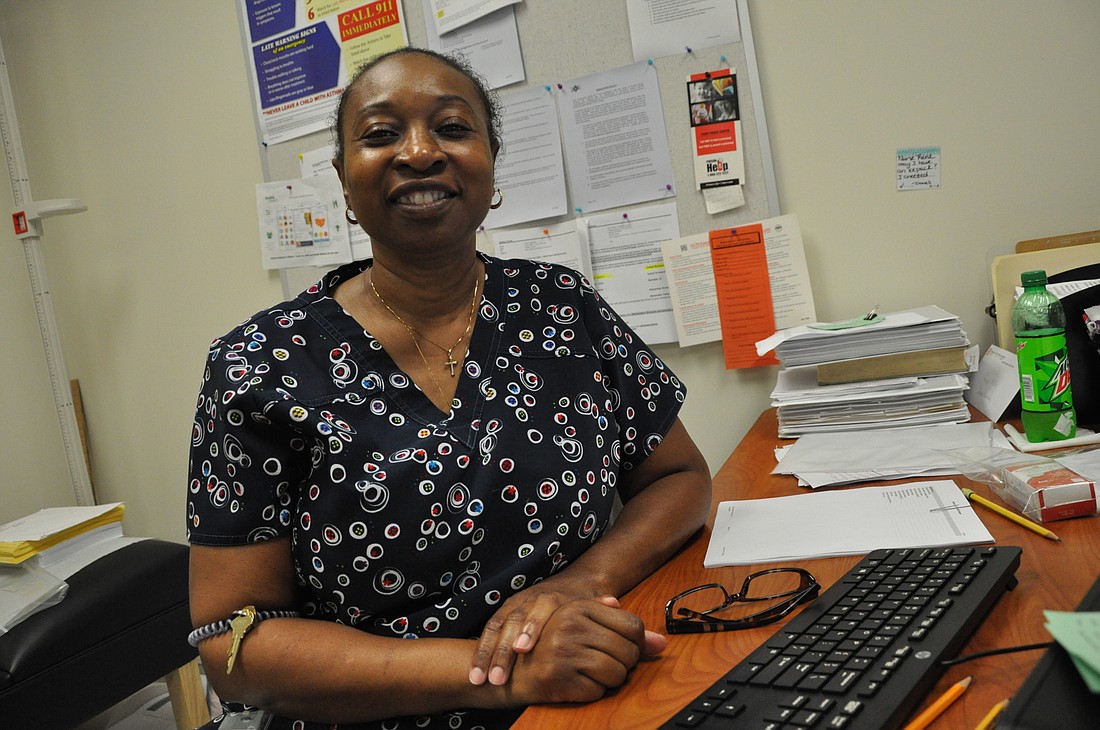- April 18, 2024
-
-
Loading

Loading

It’s that time of year again. Back to school means new teachers, new classes and making new friends. And parents know it’s also the time when their children often catch a virus going through the classroom.
However, with the proper care — and perhaps just a little bit of luck — students returning to school can avoid a trip to the pediatrician.
Aloma Elementary School nurse Renae Medley offers some helpful advice to parents on keeping their children healthy.
1 Get Enough Sleep
Medley said sleep is critical to children functioning well at school. It helps them stay on task and energized throughout their day.
Children should be getting at least eight hours of sleep every night — that means no late-night video games or TV, so be sure to check on the little ones if they have issues with staying in bed.
Making sure your child eats a good meal before bed can also help them stay asleep.
A great night’s sleep also goes a long way in bolstering your child’s immune system, Medley said.
“Now you’re coming back to school, and you’re being exposed to all the other kids’ germs,” Medley said. “If you’re not getting enough sleep, then your immune system starts to break down. That’s why always after about the sixth or eighth weeks, you start seeing the kids coming in with colds.”
2 Eat Breakfast Every Morning
Children should always start their day with some kind of breakfast, Medley said, because it jumpstarts their minds and bodies.
Even if your child doesn’t normally eat breakfast, just a glass of orange juice, a piece of toast or some fruit can give them the boost they need to come to class alert and focused, she said.
“Now that we’re a Title I school, every child gets free lunch and breakfast, so there’s no reason for anybody not to eat now,” she said. “Even when they’re running late, we still make sure they get their breakfast. They can take it to their classroom.”
3 Wash those Hands
Keeping hands clean and free of germs is a fundamental step in not getting sick. It starts at home and needs to start at a young age, Medley said.
Aloma Elementary teachers go to great lengths to keep the school clean — wiping down desks and doorknobs — but it has to carry over to home life, she said.
Just washing your hands with simple soap and water can be more effective than hand sanitizer in the travel-size bottles. It’s also important that children wash their hands thoroughly, scrubbing their hands long enough.
Medley’s rule of thumb? Have them count 10 elephants, similar to the one Mississippi, two Mississippi rule.
“If you give them something like ‘A, B, C, 1, 2, 3’ or ‘10 elephants,’ they’ll remember that, but if you tell them ‘just 10 seconds’ they’re not going to remember that,” Medley said.
4 Prepare for the Elements
Making sure your child is wearing the right clothing is also important, especially in Florida’s temperamental weather, Medley said. Check the forecast and make sure your child has a jacket in their backpack if it’s going to rain or get chilly. The same goes for having a cold classroom — be aware of your child’s comfort and dress them appropriately.
The same mindset goes for hot days. Send them to school with short sleeves so they stay cool.
“Right now, you go out, and it’s hot when they go out to play,” Medley said. “If you got a long-sleeved shirt on and you start running around, in five to 10 minutes you get overheated.”
And most importantly, keep them hydrated by adding a water bottle to their backpack — whether it’s hot or cold outside, Medley said.
5 Do What You Can
If there’s anything that Medley has learned in her 11 years as a school nurse, it’s that not every single healthy precaution is feasible for parents. Many parents on a tight budget usually won’t be able to buy the healthiest foods, or have the time to keep their children on a strict exercise regimen.
The important thing is to do the best you can, she said. Look after their needs, be aware of their health and don’t feel guilty for not jumping through every healthy hoop.
Some “practical” healthy steps aren’t very practical at all, Medley said.
“I’m looking at my picture — when you’re a single mom, you’ve got to do this, this, this and this, you don’t have time to go out there and play.” Medley said. “You can’t fault them for that.
“Everything in this world depends on your time, economics and what you’ve got to work with,” she said. “You do the best you can. That’s it.”